PGO acknowledges importance of journalistic materials on collaborationism and war crimes – discussion
Journalists play an important role in covering criminal cases over collaborationism and international crimes committed during the Russian war against the Ukrainian people.
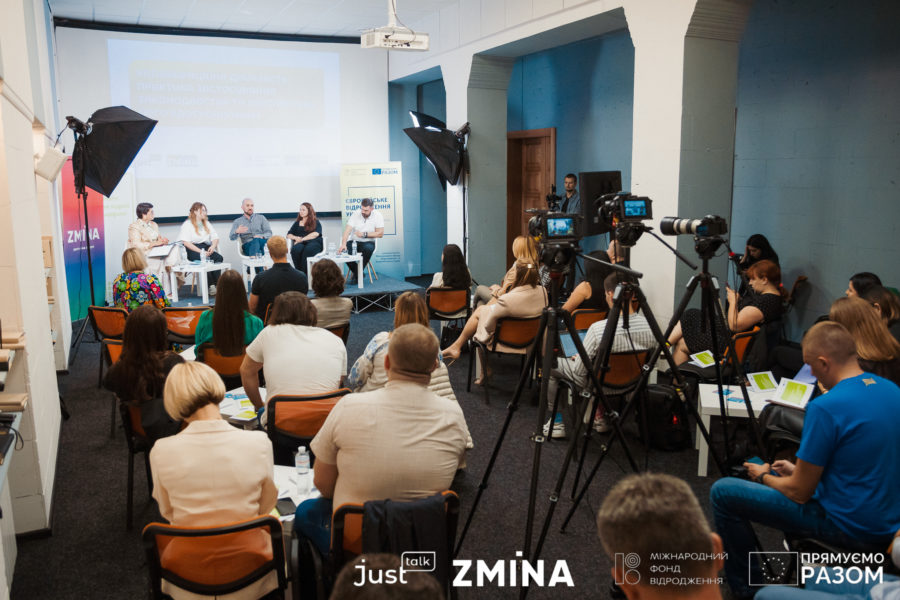
Oleksandr Zhyla, deputy head of the Prosecutor General’s Office (PGO), stated this in Kyiv during a JustTalk discussion on the specifics of the application of legislation on collaborationism.
In his speech, Oleksandr Zhyla has high hopes for covering the circumstances of this category of criminal cases.
“Manuscripts and electronic evidence do not burn… Our future generations will assess the unfolding events not from the materials of criminal cases, but from journalistic investigations and covered stories,” he said.
Zhyla added that the results of journalistic investigations by court journalists attracted the attention of lawyers, judges, and prosecutors even before the full-scale Russian invasion because journalists carefully study the circumstances that happened in court, what judgment the court delivered, what arguments were used, what were the arguments of the parties.
Oleksiy Arunian, a journalist of the Graty media outlet dedicated to court journalism, said that he had repeatedly heard a thesis that it is journalists who contribute to justice by covering such cases.
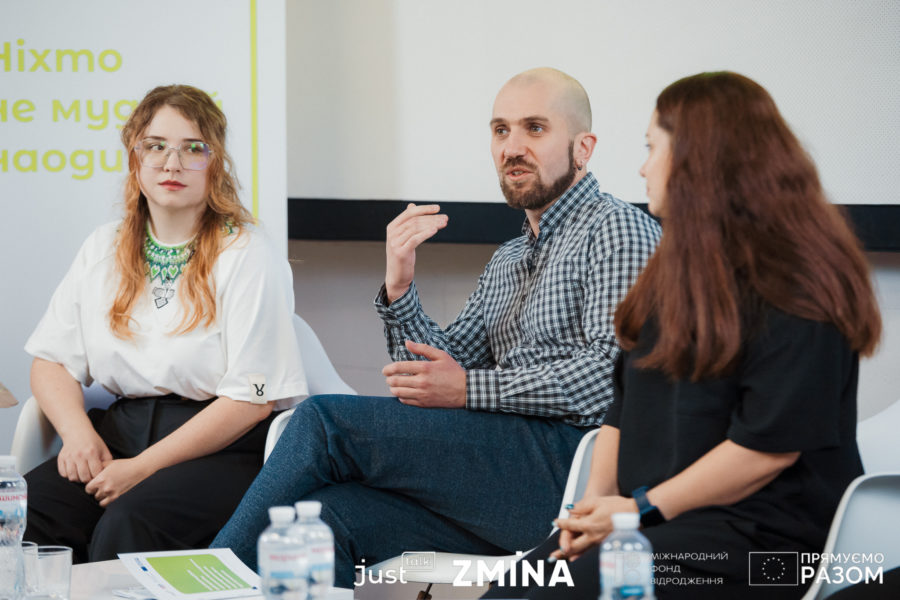
The journalist, who covers criminal cases over collaborationism in the liberated territories, talked about one such case in Dnipro. In it, the defendant was the chief engineer in the railway workshops of the town of Lyman, Donetsk region.
“Although the workshop was not working because the railway was destroyed there, they instead cleaned the utility premises of the railway. The man was imprisoned in a pre-trial detention center, the mother cries at the hearing, the lawyer is indignant: ‘How can it be that those people, who invited Russians and walked with Russian flags, get away with it because they left, while Lyman residents who wanted to survive are sitting in the prison.’ And a prosecutor answers out of guilt: ‘We have such a code, we have to apply the norm of the article. We have a journalist at the hearing, can he write an article about it?’” Arunian said.
The journalist points to the tendency that citizens, who actually supported Russia and helped the Russians seize Ukrainian territory, left together with the occupying forces. And he did not see a single person, who would really support Russia, among those accused under the article on collaborationism.
“Mostly there were people who were forced in one way or another. Lyman is a very ruined town. It looks roughly like Mariupol. The front line passed through the town twice. There is a post-apocalypse. People had no money, no shops, no jobs. And in such conditions, they were forced to collaborate,” Arunian said.
As part of the special project “Lyman: Strangers Among Their Own“, the journalist covered the criminal case against electrician Dmytro Herasymenko, who headed the service that restored the electricity supply during the temporary occupation of the town. The man explained that he went to this job because he had to feed his family and the town needed electricity. He was arrested.
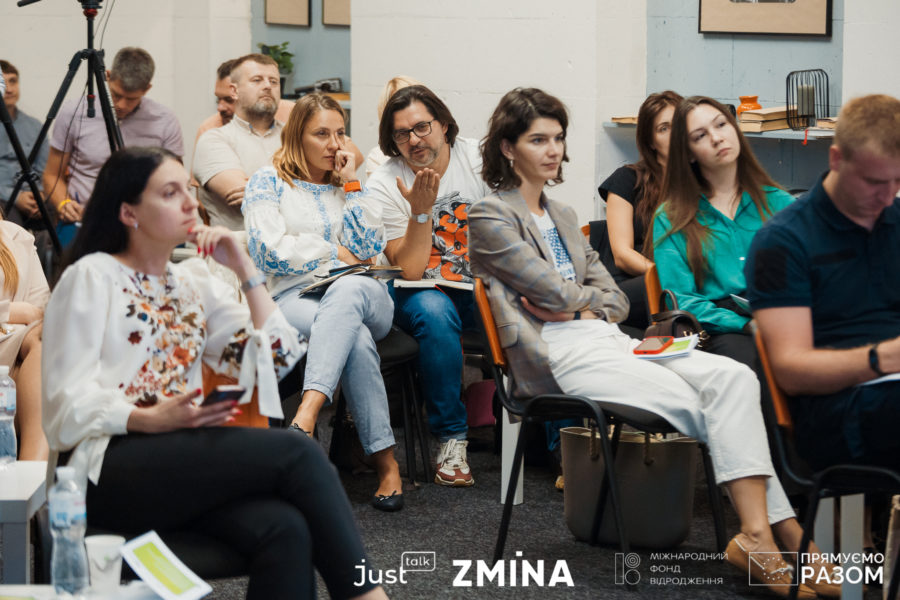
“I attended almost all court hearings and did not see that the court wanted to understand the motives of this person. The trial was purely formal. After five minutes of debate, the judge announced the verdict, and the parties were immediately given the text of the ruling. This shows that the judge wrote the verdict even before the debate,” the journalist said.
Among other things, Arunian points out that such defendants usually do not have much money for defense. In such cases, people are often defended by free legal aid lawyers who, according to his observations, do not always perform their duties well. Therefore, such cases usually do not reach the courts of appeal.
Also, it seems to the journalist that the actions of two public figures, the so-called “neighborhood heads” in Lyman, do not constitute a crime. Investigators classified their actions as “holding positions in occupation authorities”, while these women are representatives of the body of self-organization of the population which operates based on the Law of Ukraine “On Bodies of Self-Organization of the Population.”
Arunian explained that in this town, in addition to local self-government bodies, there are also self-organization bodies of the population.
“There is a street head on every street. Usually, this is an active woman who monitors order on the street and is an intermediary between the local authorities and her neighbors. These street heads elect heads of microdistricts, who coordinate the work of street workers. Such a system of self-organization of the population existed even before the occupation of the town,” the journalist explained.
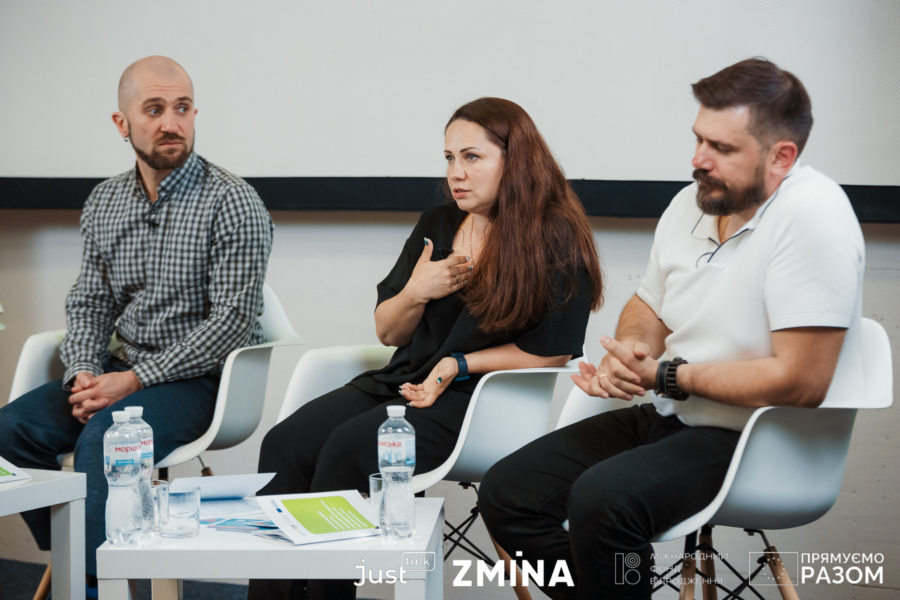
He added that when Russia occupied Lyman, the town was destroyed, and the residents had a lot of problems: destroyed and damaged houses, no one took out the garbage, bodies were lying in the streets, the cemetery was mined. At that time, it was not clear how to bury people, where to get food and how to repair buildings.
According to him, the town residents went to the street heads, and those – to the heads of microdistricts. And those – already to the occupation authorities with a question what they should do.
“After Lyman was liberated, these heads of microdistricts continued to perform their functions and communicate with the legal Ukrainian authorities. However, the Security Service of Ukraine detained two elderly women for collaborationism and arrested them. One of them was already sentenced to five years in prison. And again, the judge delivered the judgment five minutes after the debate,” Arunian said.
The journalist believes that the Ukrainian mass media are afraid to cover criminal cases about collaborationism and only international journalists are interested in such cases.
Arunian admitted that he expected a more acute response from the audience to the coverage of this category of cases, however, readers are aware of excesses in this area.
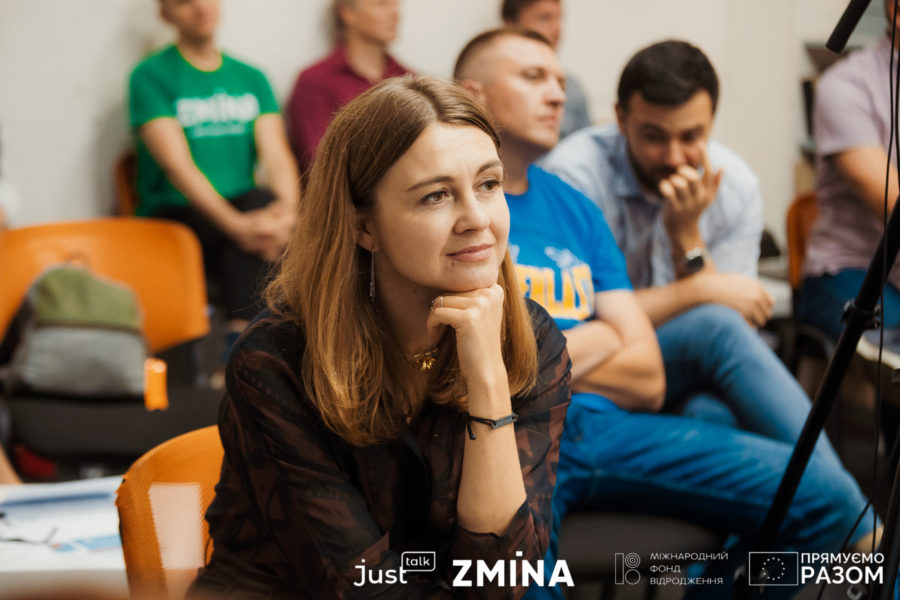
“Of course, someone wrote us that we ourselves should be checked or somehow punished for our journalistic activities. But in general, the audience was divided 50 by 50. There were battles in the comments. But half believe that it is necessary to analyze each individual case and that the Soviet experience of finding enemies should not be applied in Ukraine,” the journalist said.
During the Coalition Talks, Olha Skrypnyk, head of the Crimean Human Rights Group and coordinator of the Expert Network of the International Crimea Platform, expressed her belief that collaborationism cases are a challenge for the state.
The human rights activist stated that there are currently known examples of criminal cases that threaten the successful reintegration of liberated territories. She believes that the pace with which Ukraine will restore life in these territories depends on the proper regulation of collaborationism legislation.
The material was prepared with the support of the European Union and the International Renaissance Foundation within the framework of the joint initiative “European Renaissance of Ukraine”. The material represents the position of the authors and does not necessarily reflect the position of the European Union or the International Renaissance Foundation.
If you have found a spelling error, please, notify us by selecting that text and pressing Ctrl+Enter.















